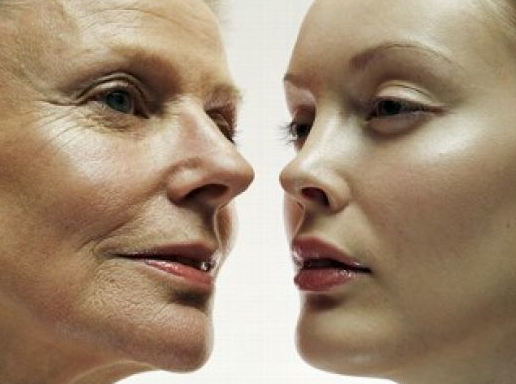NEW DOC ON AGING: To Age or not to Age
Director Robert Kane Pappas, best known for his documentary “Orwell Rolls in his Grave” (2003) has strung together a new film about the controversial science of anti-aging. I say “strung together” because despite the wealth of footage and resources he has to draw on, “To Age or Not To Age” is disjointed, poorly edited and difficult to sit through.
Clearly fascinated by his subject, Pappas fills most of his 96-minute run time interviewing the various talking heads on both sides of the anti-aging debate. In one camp are scientists from MIT, Harvard, and other top institutions who eulogize the benefits of slowing down or delaying the aging process at a cellular level. In the other are artists, skeptics and “regular people” (society folks from the Hamptons, where Pappas is based) who wonder aloud about the philosophical and ethical implications of prolonging human life.
The science portion of the film is actually quite fascinating. First we meet the father of anti-aging science, Dr. Larry Guarente, at MIT. A rare academic who can translate the arcane into the comprehensible, Guarente explains that he and his lab have discovered that the secret to thwarting age lies in a particular set of genes. By impeding these genes and slowing down the aging process, a panoply of diseases including cancer and Alzheimer’s are practically eliminated. Once you get past the jargon, it’s pretty compelling stuff; if To Age could be turned into a one-hour Nova episode, it would be great.
Naturally, there is competition and intrigue among the scientists—in particular, Dr. Aubrey de Grey, who argues that humans could live to be 1,000 or even 1,000,000 years old, personifies the thin line between science and evangelism, and makes people on both sides uncomfortable. Other scientists discuss their inner turmoil about finding God, testing drugs and working for giant pharmaceutical companies.
However, after the initial laying down of pro and con arguments Pappas struggles to keep the film moving, and the last thirty minutes drag noticeably. One irritating technique that he uses, repeatedly, is to insert text between live-action scenes and then to layer his voice over it so that the audience is both reading, and being read to at the same time. This would be slightly less annoying if the narration and the text matched precisely but they don’t.
Similar technical glitches with editing and soundtrack detract markedly from the point the film is trying to make. Though his grasp of his subject and the access he’s gained to leading scientists are impressive, Pappas’ film fails to captivate. One wonders why, if he had the resources to make the film in the first place, he didn’t simply hire an editor.







